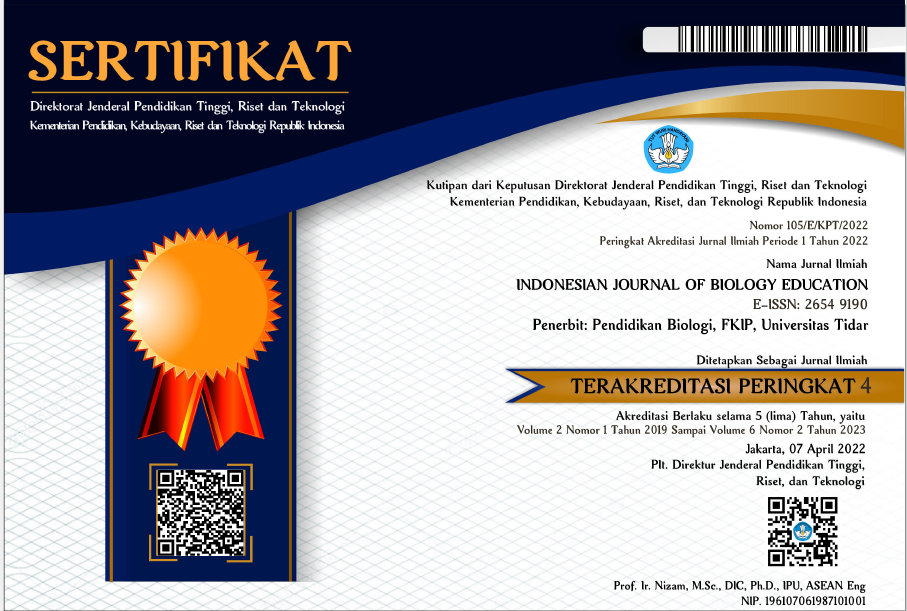Standard Operational Procedures for Organizing Practical Activities in High School Biology Laboratories in Yogyakarta City
Keywords:
Good Laboratory Practice, Laboratory, Standard Operating ProcedureAbstract
The standard of operating procedure (SOP) is a laboratory activity method and must meet the criteria of good laboratory practice (GLP) and other stipulations of valid legislation. The article aims to establish ownership/lack of the SOP of a laboratory that has a public high school laboratory in the city of Yogyakarta. It uses descriptive research. The purpose of descriptive research is to describe images systematically. The research was conducted at Yogyakarta State High School in June 2022—data collection techniques via observation, interviews, and questionnaires. The forms of the instruments used were observation sheets, interview sheets, and checklists, where the instruments had been validated. Samples in this study are random sampling, SMA A, SMA B, and SMA C. This research subject is the head of a high school biology lab in Yogyakarta. The study showed that high school biology LABS A, B, and C already had the SOP implemented, but there was still a lack of it, and this led to increased safety principles. School A has as many as 9 SOPs, school B has as many as 10 SOPs, and school C has as many as 8 SOPs. Out of all three schools, only school B had SOP malfunction of lab equipment. Presumably, school B has the most complete SOP than schools A and C.















